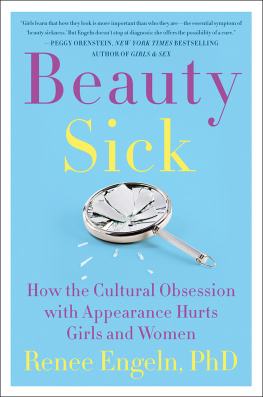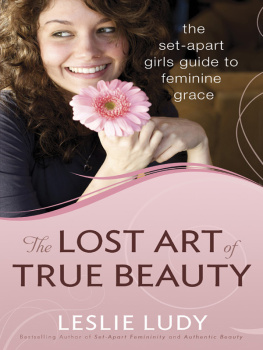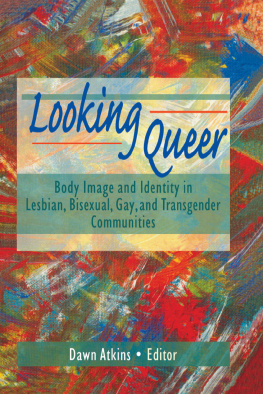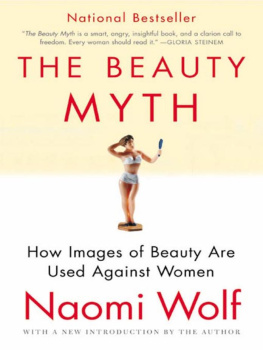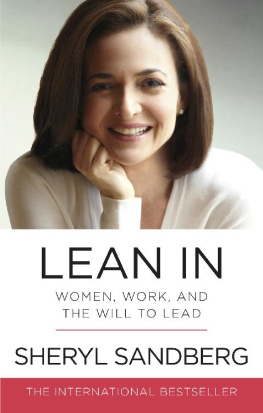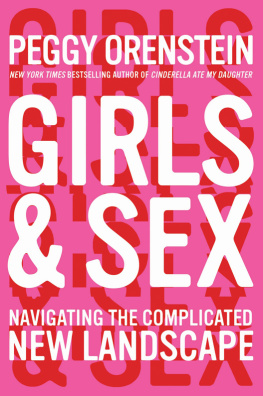Contents
To the girls and women who fight, in all the ways they know how, for better tomorrows.
I sometimes think I could take on the world,
but first...
Oh my God, my eyebrows need plucking
And oh my God, my legs need shaving
And my pores need cleansing and my skin needs toning
And my boobs need padding and my hair needs combing
Siwan Clark, The Armpit Song
I taught my first college-level course, The Psychology of Women, almost twenty years ago. As I got to know the young women who were students in my class, I became both impressed and concerned. These students blew me away with their intelligence and perseverance, their humor, and their consistent openness to engaging with difficult ideas. But some of the worries that burdened these talented women surprised me with their intensity. Of course there were anxieties about things like grades, finding a job, or relationship troubles. But these women also spent an alarming amount of time worrying about their weight, their skin, their clothing, and their hair. One student admitted she missed class one day simply because she felt too ugly to be seen in public. The other women in the class accepted this claim without surprise, secure in the knowledge that if youre a woman worrying about how you look, youll always be in good company. After offering the obligatory reassurances that she wasnt ugly, they patted her on the shoulder with gentle understanding.
I recently met up with a friend of mine who is a professor at a small university in the South. As we sat at a local caf, catching each other up on our lives, he began telling me a story about the service trips abroad that he leads for college students. A couple of weeks before one of these groups was set to leave for a tropical location, he asked the students to write reflections on whether they were prepared for their trip. Out of the seven women in the group, five wrote that they werent ready because they had hoped to lose weight before leaving. They seemed more worried about how their bodies might appear than whether they had sufficiently reflected on the work they hoped to do during their trip. Not one man in the group wrote about his body not being ready. When my friend shared that story with me, my mouth actually dropped open for a moment.
No, I responded. I didnt want to believe him.
Yes, he confirmed. Five out of seven.
What did you write on their journals? I asked. What kind of feedback can you give in response to that?
He told me he wasnt sure what to write, but eventually settled on reassuring those five women that the culture they were visiting was accepting and nonjudgmental. I doubt that provided much comfort. Even when we travel, we never really leave our own culture far behind, and thats the culture that led these women to write what they did in those journals.
So many young women today are strikingly bold in important areas of their lives, but still crumble in front of the mirror. They fight so hard to be treated with respect, but seem, at least at times, to be willing to trade it all in an instant if they could only remake their physical appearance.
Sometimes I wonder if I and the grown women I know are really so different from that student who skipped class in response to what she saw in the mirror, or the young women who werent ready to travel because they didnt feel thin enough. Maybe weve never stayed home from work due to a case of the uglies, but how often have we had conversations about our physical flaws, bonding over our displeasure with weight gain or newly appeared wrinkles? How much more time do we spend getting ready for work every day compared to our male colleagues? When one of my most beloved mentors told a group that she wore a scarf every day because her aging neck was too hideous to be seen, why didnt we question that type of talk? Why are some of my women colleagues still worrying about how many hotness-indicating chili peppers they have on a popular rating website for professors? We may no longer play dress-up and pose in front of the mirror the way many young girls do, but I worry thats only because weve internalized that mirror. We never actually left it behind.
For the past fifteen years, I have dedicated myself to studying girls and womens struggles with beauty and body image. I often look back to that first class I taught and think about the young woman who wouldnt leave her room one day because she felt too unattractive. I dont believe shes that atypical. I also dont think she was crazy or unusually vain. What I do believe is that she was suffering. She was beauty sick.
We should not be surprised at how many women struggle with beauty sickness. We have created a culture that tells women the most important thing they can be is beautiful. Then we pummel them with a standard of beauty they will never meet. After that, when they worry about beauty, we call them superficial. Or even worse, we dismiss their concerns altogether, saying, Everyone is beautiful in their own way, and admonishing them to accept themselves the way they are.
I wrote this book with the hope that it would provide a path through the miasma of messages we hear about women and beauty. Todays women (and the people who care about them) deserve an honest and challenging assessment of the role beauty plays in their lives, along with scientifically sound advice on how to most effectively push back against a beauty-sick culture.
In addition to scientific research, I will share the stories of a variety of women making their way through beauty sickness. Although these women come from many different walks of life, they are not a representative sample of all women. They are simply women who had stories to tell and were willing to share those stories with me. In particular, they are a relatively privileged group, mostly college-bound or college-educated. Additionally, none are transgender women.
Most interviewees chose to have their names and identifying details changed to protect their privacy and the privacy of other people in their narratives. These women are marked with an asterisk when first introduced. Beyond edits for clarity and changes to protect identities, interviewees words are their own.
I hope you will find at least one woman in this book whose story speaks to you. No matter our differences, we are all on this road together. The words of others who have walked before us can be powerful guides. The words of those who feel they are walking alone or stumbling can remind us to care for each other.
One
This Is Beauty Sickness
Will I Be Pretty?
When I talk to young girls, I often ask that question so many adults ask. What do you want to be when you grow up? I love the variety of answers. A teacher. A scientist. An astronaut. A veterinarian. A painter. The president. But no matter what type of life young girls dream of, I know theres a good chance there are two things they really want to be: thin and pretty.
Girls start thinking about their ideal body at a shockingly early age. Thirty-four percent of five-year-old girls engage in deliberate dietary restraint at least sometimes. Twenty-eight percent of these girls say they want their bodies to look like the women they see in movies and on television. To put this into context, important developmental milestones for five-year-olds include the successful use of a fork and spoon and the ability to count ten or more objects. These are girls who are just learning how to move their bodies around in the world, yet somehow theyre already worried about how their bodies look, already seeking to take up less space.
Between ages five and nine, 40 percent of girls say they wish they were thinner. These young girls are not worried about their weight because of health concerns. Theyre worried because they know that being pretty matters for girls, and that in this culture, thinness is a key component of that prettiness.

